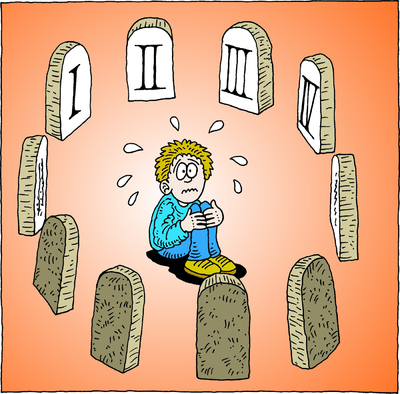"And in the last days it shall be, God declares,
that I will pour out My Spirit on all flesh,
and your sons and your daughters shall prophesy,
and your young men shall see visions,
and your old men shall dream dreams;
even on My male servants and female servants
in those days I will pour out My Spirit, and they shall prophesy.
and signs on the earth below,
blood, and fire, and vapor of smoke;
the sun shall be turned to darkness
and the moon to blood,
before the day of the Lord comes, the great and magnificent day.
And it shall come to pass that everyone who calls upon the name of the Lord shall be saved."
- Acts 2:17-21
In the above passage, the Apostle Peter quotes from Joel 2:28-32 as his explanation of what has just occurred in this chapter of Acts. The Holy Spirit has been poured out on the Apostles and other disciples waiting, as Jesus had commanded them in Acts 1:4-5, for the empowering of the Holy Spirit. That Spirit had indeed come upon them, enabling them to speak in languages that they did not know, but which were recognized by their audience, consisting of Jews of the Diaspora, visiting Jerusalem from all over the eastern Empire (Acts 2:5-11). To assuage their shock, Peter reminds them of this prophecy, and then continues:
"'This Jesus God raised up, and of that we all are witnesses. Being therefore exalted at the right hand of God, and having received from the Father the promise of the Holy Spirit, He has poured out this that you yourselves are seeing and hearing. For David did not ascend into the heavens, but he himself says, The Lord said to my Lord, Sit at My right hand, until I make Your enemies Your footstool. Let all the house of Israel therefore know for certain that God has made Him both Lord and Christ, this Jesus whom you crucified.' Now when they heard this they were cut to the heart, and said to Peter and the rest of the apostles, 'Brothers, what shall we do?' And Peter said to them, 'Repent and be baptized every one of you in the name of Jesus Christ for the forgiveness of your sins, and you will receive the gift of the Holy Spirit'" (Acts 2:32-38).
Note that the parallels between Joel's prophecy and the Pentecostal fulfillment are not merely general. Where Joel says that God will send the Holy Spirit, Peter tells his audience that it is Jesus who has poured out the Spirit. And where Joel tells his audience that calling upon the name of the Lord (Yahweh in the Hebrew) they shall be saved, Peter tells his audience that it is the name of Jesus that brings forgiveness of sins. Is the logical conclusion, then, not necessarily that Peter believes and is teaching that Jesus is the same Yahweh who mediated for Israel as the covenant God in the Old testament? I say that that is the only possible conclusion.







